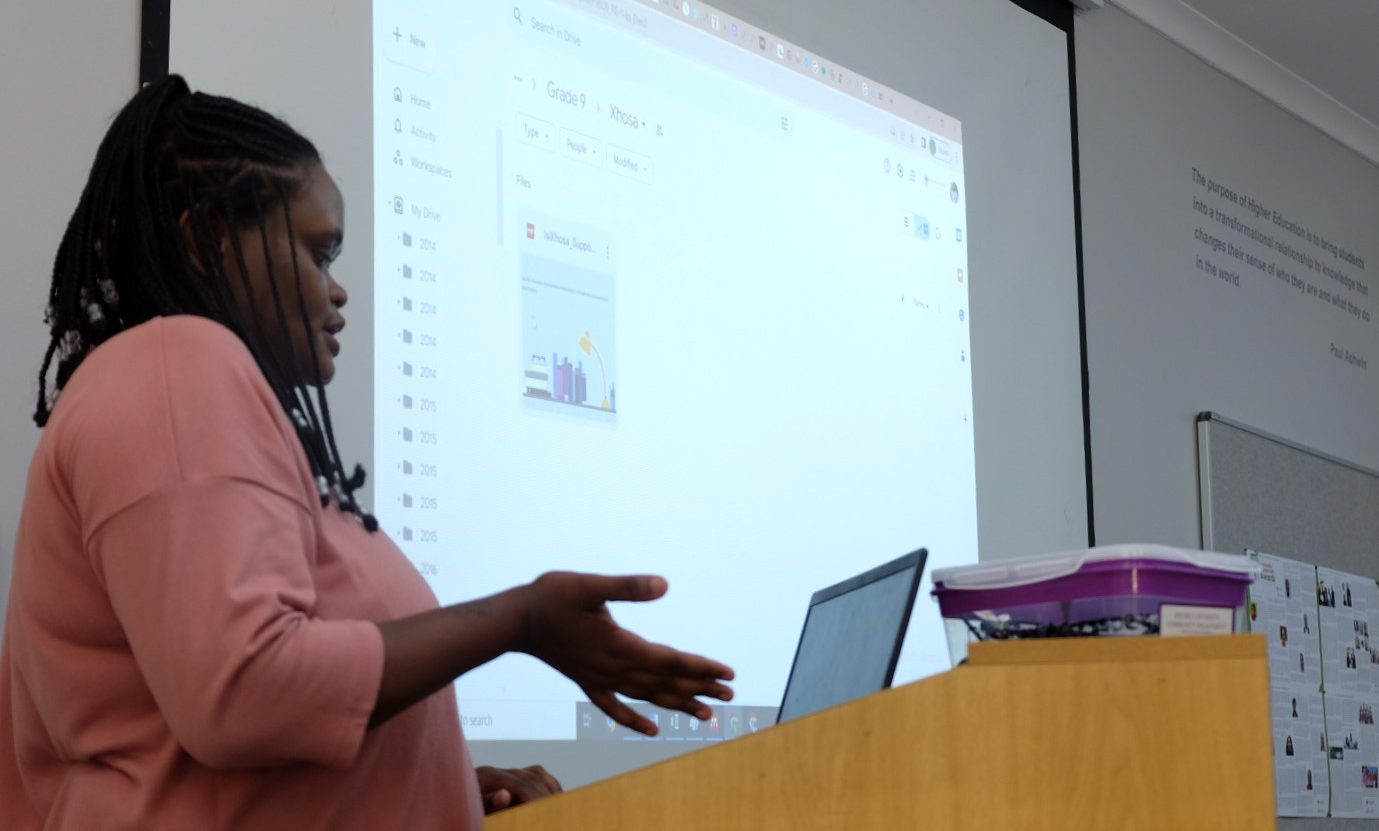By Rod Amner
SD memory cards measure just 32mm ×24mm ×2.1mm.
But, when loaded with hundreds of textbooks, study guides, exam papers and memos, high-quality, CAPS-aligned educational videos from YouTube, ebooks and audiobooks and inserted into learners’ phones, they can be powerful educational aids.
On Wednesday, 14 February, a batch of these 32GB SD cards were distributed to Vuli’ndlela, a group of Rhodes University support staff who, between them, are the parents and guardians of 46 Grade 9-12 learners.
Vuli’ndlela, run by Rhodes University Community Engagement (RUCE) facilitator Thandie Nqowana, provides academic support to the workers’ children.
“Development starts at home,” she told the parents before explaining how their children can access the study materials stored in the cards on phones, tablets and computers.
In March, the children will begin Saturday classes. The memory cards will be used in their tutorials to facilitate comprehension across various academic subjects, Nqowana said.
A group of four local Social Employment Fund (SEF) workers, managed by local NGO Awarenet, spent the past month furiously downloading a wealth of educational and recreational resources and copying them onto the cards.
While completing matric at Ntsika, three of the workers – Uzu Dikana, Kamvelilhe Gule, and Aphiwe Teyise – received SD cards from RUCE. They are all adamant that cards helped him pass under difficult, Covid-affected circumstances.
Of course, all these helpful digital materials are downloadable for free from the internet. The problem is that many young people don’t know where to find them or don’t have the data or disk space to access them.
Next month, the SEF workers will also help Thandiswa create hundreds of SD cards for matrics in four local, no-fee-paying high schools.
The professionally produced video content on the cards comes from Mindset Learn and other sources. It is aligned to the national curriculum of the public school system and in subjects that include mathematics, maths literacy, physical sciences, life sciences, English as a first additional language, computer applications technology, natural sciences, geography, and accounting.
The SEFs are also working on a project with the Lebone Centre to create SD cards packed with hundreds of ebooks, audiobooks and learner support materials in three local languages for younger children in 50 families as part of a broader home literacy project.
Another SEF worker, Lindani Donyeli, has a 12-year-old son who is pioneering these SD cards in his home. He will help other families do the same.


